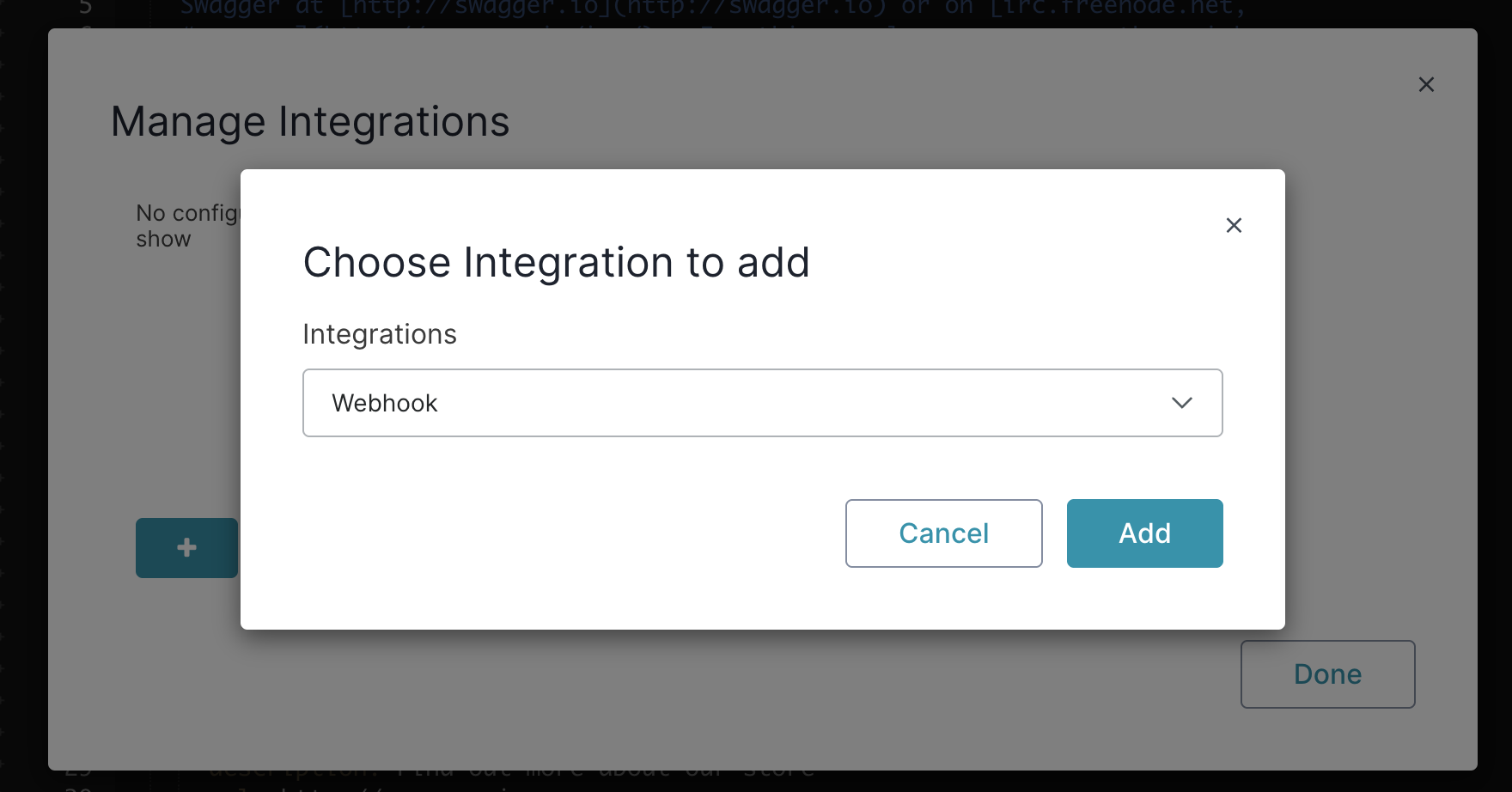Automatic Synchronization to Apiboost
This guide outlines the process of configuring a webhook integration in SwaggerHub and syncing it automatically with Apiboost. This will keep your API Documentation up to date in realtime without needing to manually sync changes within Apiboost.
For newly created API References in Apiboost, the API Reference will still need to be manually linked to an API Product for it to be visible to your API consumers. This sync process simply creates the API Reference. To manage the full lifecycle and connection between API Reference and Product, see our CI/CD Pipelines documentation.
Configuring SwaggerHub Webhook
Open your API in the SwaggerHub editor.
In the right hand corner of SwaggerHub UI, hover over Sync and click “Set Up Integrations

In the Integrations list, select Webhook

Webhook Configuration Details
Name: Choose a descriptive name for your webhook (e.g., "Apiboost Sync").
Payload URL: Enter
https://your-apiboost-domain.com/api/v1/sync-swaggerhubContent Type: Select "application/json"
Lifecycle Events: Choose the events that will trigger the webhook:
After API/version saved
After API/version published
Additional Headers: Add necessary authentication Header:
Authorization: Bearer <username:password>. Note: It is recommended to create a Service Administrator account - see RBAC for Internal Users for additional information related to this role.
Your username:password must be a Base64 encoded value. This can be generated using this command in your CLI:
echo -n “username:password” | base64
Be advised that using an online encoder is not recommended due to the sensitive nature of the username and password.
Finalizing Webhook Setup:
Click "Create" to add the webhook.
Click "Done" to complete the setup
4.
Syncing with Apiboost
Once the webhook is configured, SwaggerHub will send a POST request to the specified Apiboost endpoin whenever the selected lifecycle events occur. The payload will either create an API Reference if one of the same name and version do not exist in Apiboost. Alternatively, if an API Reference is detected to use the API Documentation from SwaggerHub, it will be updated.
